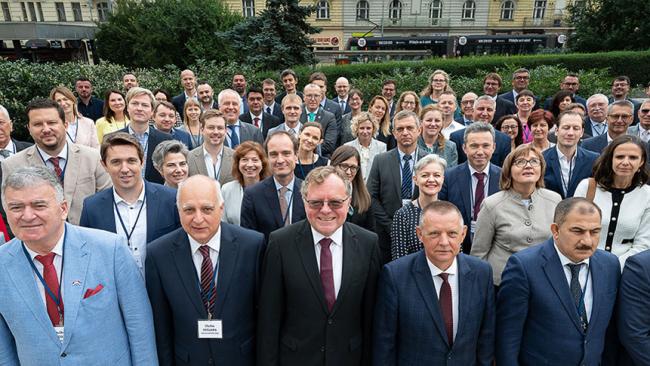On 25-27 September 2023, a yearly meeting of the EUROSAI Working Group on Environmental Auditing (WGEA) was held along with the celebration of the 30th anniversary of the Supreme Audit Office of the Czech Republic. The event was attended by the President of the Council of Ministers and the Speaker of the Parliament of the Czech Republic. NIK President Marian Banaś participated in the opening of the EWGEA session and the anniversary celebration.
The EWGEA meeting dealt with sustainable energy. Representatives of the European Environment Agency, the Czech Environmental Information Agency (CENIA) and EWGEA participants from various SAIs presented the latest data on the use of sustainable energy sources and prospects for achieving objectives to reduce greenhouse gas emissions.
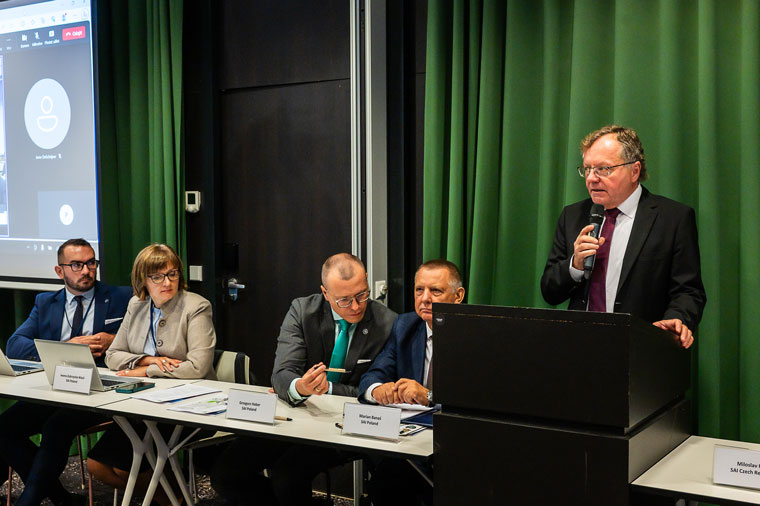
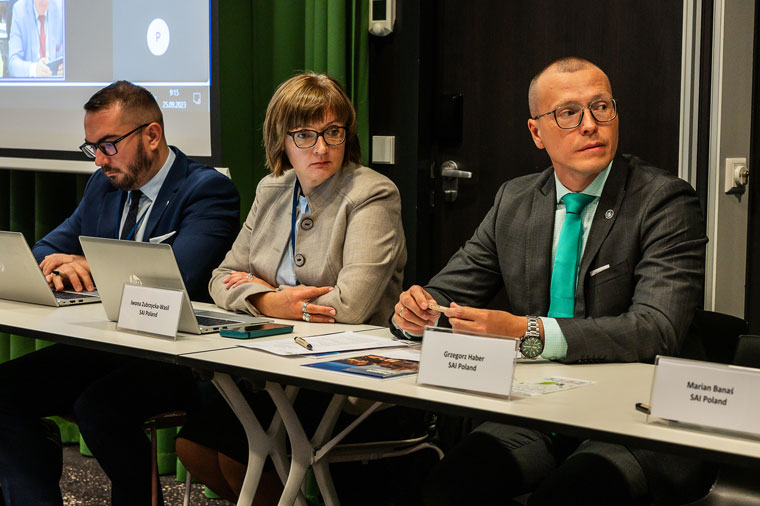
Since the Supreme Audit Office of Poland is the chair of the EUROSAI WGEA, the meeting was chaired by NIK representatives and one person from the Czech Republic.
On the occasion of the NKU anniversary and opening of the new NKU headquarters, the Czech organised a seminar on the international cooperation of the Czech SAI in EUROSAI and INTOSAI.
At the seminar on the “Greening SAI” NIK representatives presented an update on the latest EWGEA activities and a summary of the workshop in Prague.
Representatives of ECA, NIK and the SAIs of Estonia and the Czech Republic moderated the workshop during which the following issues were discussed: green fiscal policy tools, taxes and environmental protection grants, fossil fuel grants, increase in green energy prices with simultaneous stagnation of the fossil fuel production.
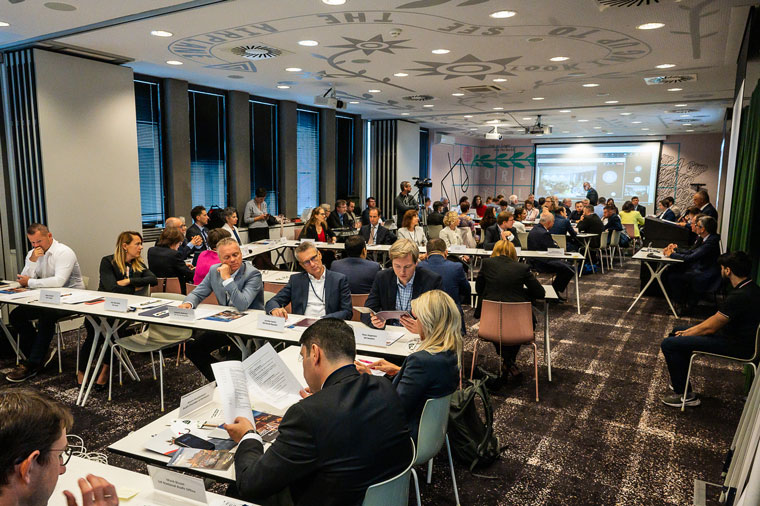
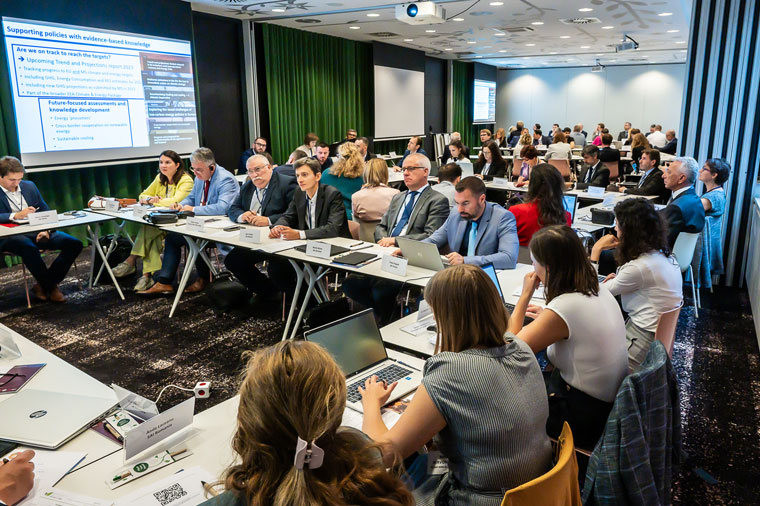
Also the emission trade system and the public debt management were addressed as the key tools of the green fiscal policy. Experiences from the energy efficiency audits were exchanged as numerous SAIs have recently carried out audits in that area so there was an opportunity to compare their results. The majority of those audits dealt with the energy efficiency of public buildings.
Also, challenges related to the energy efficiency were presented. For instance, the Czech Republic is going to spend EUR 600 billion to streamline the energy efficiency but they have limited absorption capacity to make sure the money is spent in the best way possible. In the coming months, due to the current inflation, the costs of construction works and materials will be higher. Therefore, the quality of investment projects drafted under time pressure may not be too high.
Another problem is incomplete climate awareness among persons undertaking energy efficiency projects: both investors and employees of construction companies.
At the end it was established that the EU should achieve its objectives, although there is a risk that some Member States will not be able to meet them in full or the costs will be higher than assumed because the objectives could be too ambitious.
The uptake of energy from sustainable sources, i.e. solar power, wind and water power, as well as energy efficiency of buildings and infrastructure and improved spatial management are technically feasible ways to alleviate consequences of the climate change, accepted by the society. But still coherent measures are needed in terms of the climate and development as well as a change of consumer behaviours for more climate-friendly.
To sum up the workshop – all the invited guests agreed that there is a huge need for continued cooperation in subgroups and organisation of online seminars to exchange views, opinions and draft plans of cooperative or parallel audits in future.
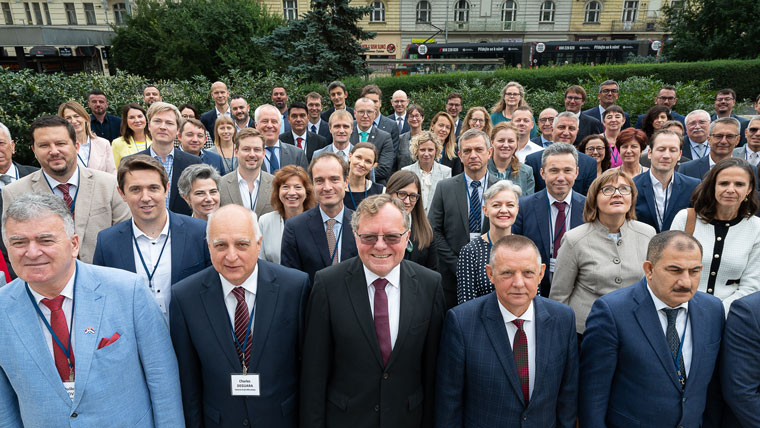
The spring EWGEA session will be organised in May 2024 in a hybrid format and will deal with the energy security. The subject of the autumn session will be related to climate offences, such as swindling but also irreversible environmental damages.


